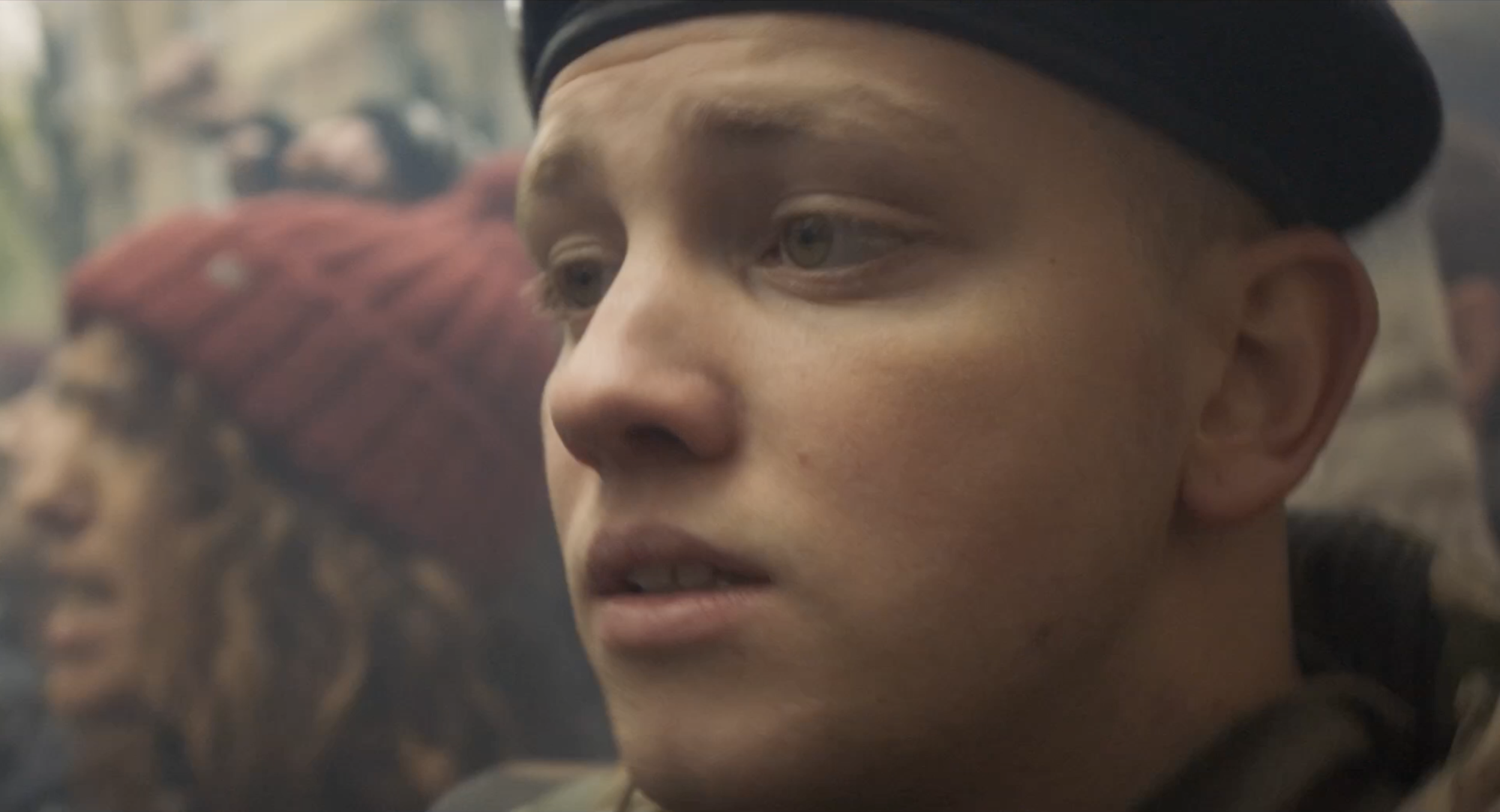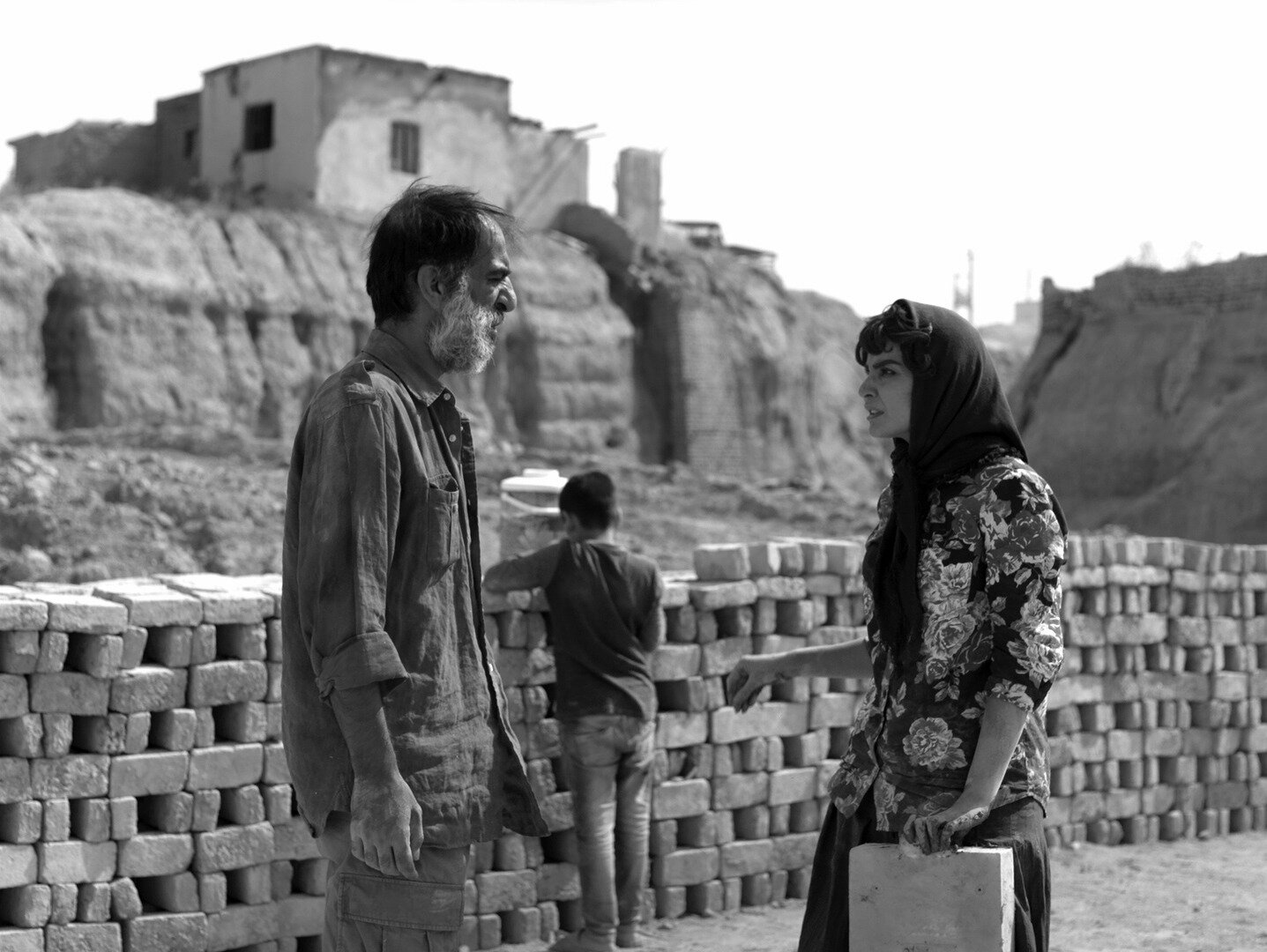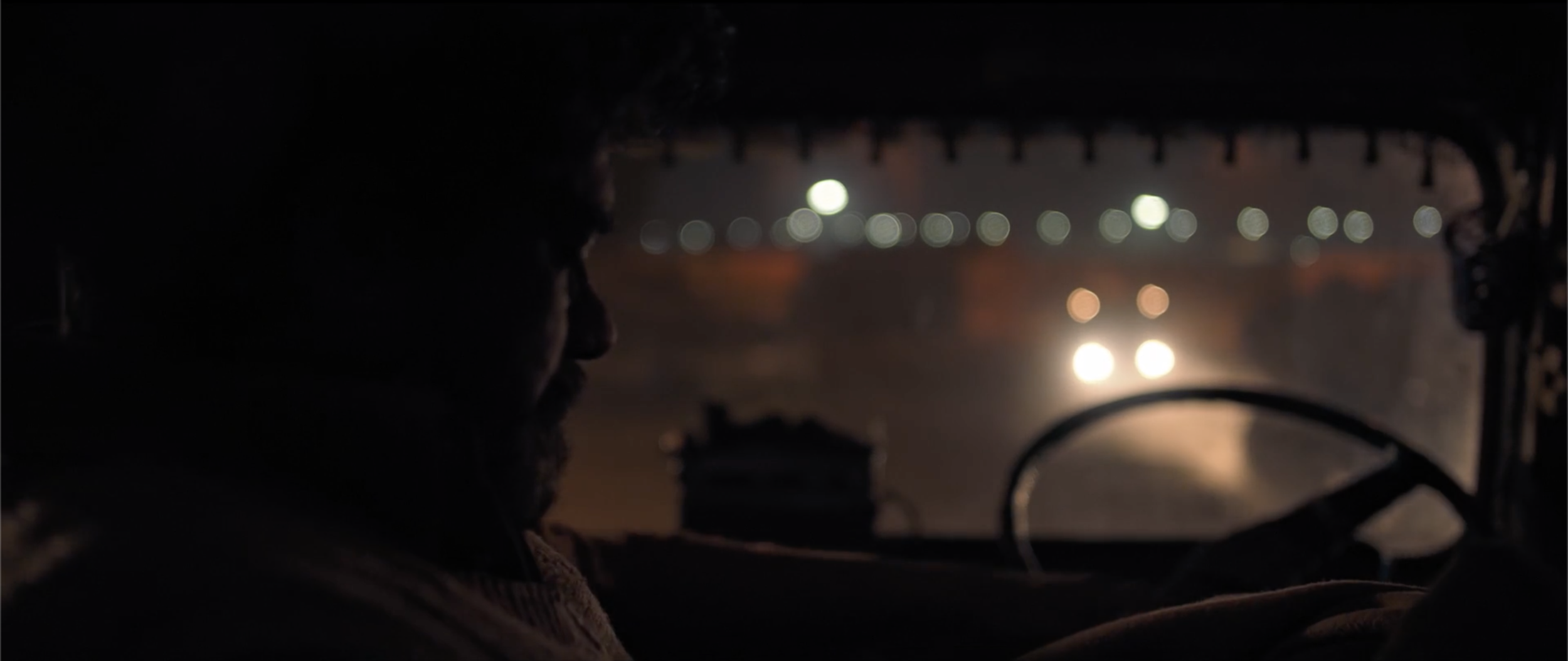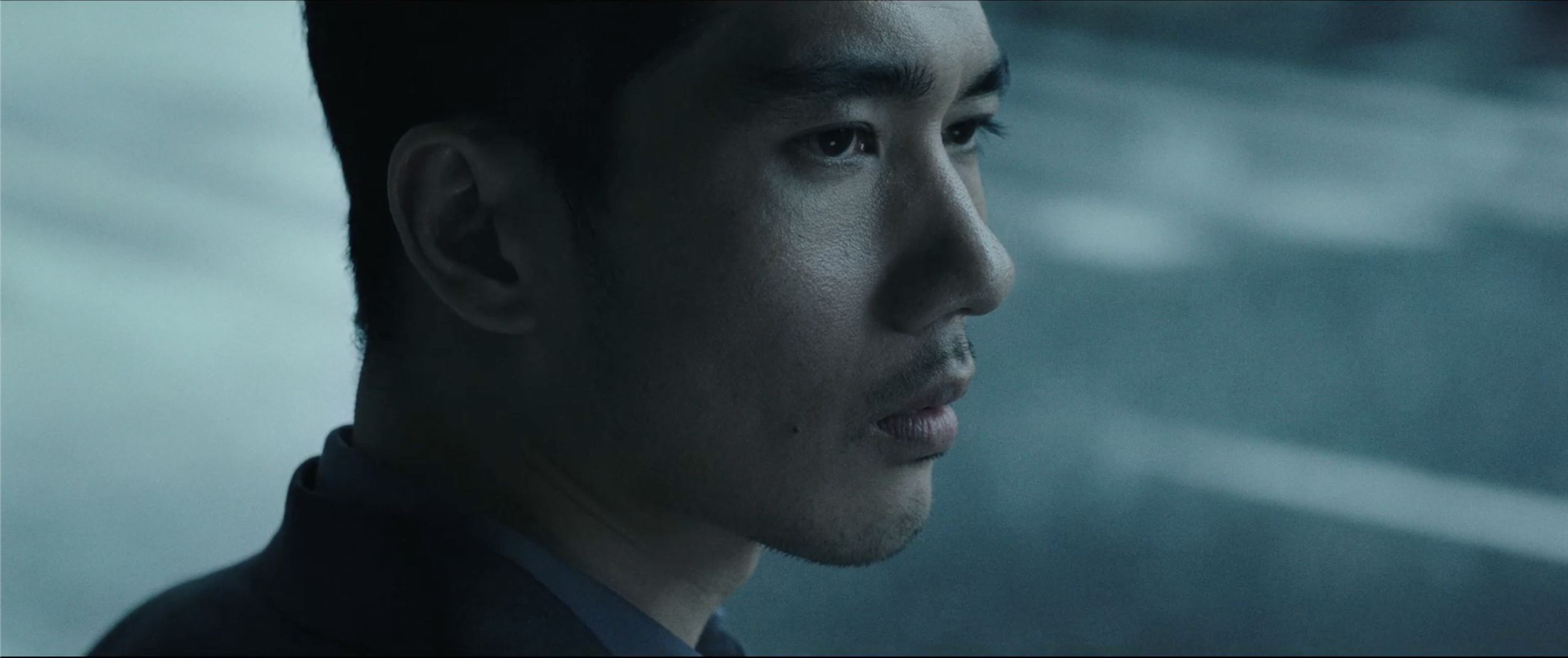The Third War (La troisième guerre)
The Third War (La troisième guerre)
Directed by Giovanni Aloi
Starring: Anthony Bajon, Leïla Bekhti, Jonas Dinal, Karim Leklou
Country: France
Year: 2020
Review author: Roberto Matteucci
Click Here for Italian Version
“You do not have to ask why?”
World War II ends in Europe on 7 May 1945, with the surrender of Germany. A week earlier Hitler had committed suicide. In Asia, it will be necessary to wait for a few months, on 2 September 1945 Japan surrenders too.
The cessation of the conflict did not mean the pacification of the world. The Third World War was many times close: the war in Korea in 1950, the crisis of the Suez Canal in 1956, the Soviet missile crisis in Cuba in 1962, the attack of Ronald Reagan in 1981. Then, the radars have reported many false missiles launches, with relative declarations of maximum alert.
After 1945, wars have continued, in limited area, but extremely bloody. Pope Francis recalled how the Third World War is already underway and is being fought in pieces:
"For some time we can say that the world has been at war, piece by piece. It is perhaps not as organic, but it is organized and it is war." (1)
It will not end quickly, there will be other ferocious fights.
Except for some wars in the Balkan countries and the agitations caused by the fall of the Berlin Wall, Europe has avoided the battles for about seventy years. The questions are many. Could Europe be hit by some "piece" of the Third World War? What nations in Europe are at risk of war? Perhaps not an external war, but an internal war, a civil war?
Terrorist events, the social clashes, the migratory ones, the failure of the integration of new generations, clearly point the finger at France. France has been targeted in recent years by brutal terrorist reprisals:
2012 Toulouse and Montauban attacks, eight dead and one wounded,
2015 Charlie Hebdo massacre, 20 dead and 22 wounded,
2015 Bataclan massacre, 137 dead and 368 wounded,
2016 Nice massacre, 87 dead and 458 wounded,
2016 Church of Saint-Étienne-du-Rouvray, three dead and one wounded,
2018 Strasbourg Christmas market attack, six dead and 11 wounded.
There have been many other assaults with fewer victims but with a highly negative impact, such as the one in the Notre Dame Basilica in Nice. Three dead, one of which beheaded inside the church. A few days earlier in Paris, a teacher was slashed for showing some images of Muhammad in class.
Terrorism is not the only problem for France. There is even an underestimated social tension. In the banlieue, the riots were many, angry and long, like those in 2005 with numerous injuries and damages. The worst in these areas is yet to come. Some banlieues are completely out of the control of the government and the police. Religious groups and drug traffickers run the suburbs, as watching in the film Les Misérables.
The turmoil in the suburbs was far from the centre of Paris. However, the devastations of the Yellow Vests arrived in the Champs-Elysées, even broke through the entrance of the ministry of relations with the parliament with a tractor.
In France, there have been many rumours of the danger of a civil war:
Manuel Valls: “If Le Pen wins, there will be a risk civil war. (2)
Éric Coquerel, French MP: "We need the unity of the country to avoid the trap who wants to create a climate of civil war, of religious war in France of". (3)
Pierre Brochand, former head of the external secret services: “If a scenario similar of the events in 2005 were to repeat today it would be necessary to ask the Army to contain it. In short, the risk having a civil war ”. (4)
Former Minister Collomb: "France risks civil war within 5 years". (5)
The film La troisième guerre - The Third War - Allons Enfants directed by Giovanni Aloi, narrates the story of three French soldiers involved in a “piece” of this war, presented at the 77th Venice Film Festival.
Léo is a young man, enlisted in the Army. A choice due to laziness, he has no militaristic ambitions. The task of the French Army is no longer focused abroad but internally for police and counter-terrorism purposes.
Therefore, Léo immediately enters into action in the Opération Sentinelle, the patrol of cities. Led by a sergeant, Léo and a comrade walk on the streets with all the armament as if they were in Afghanistan. It is not an easy job; the stress is high because the enemy is infamous and the pitfalls can come from anyone. His weak character will be fatal to Leo.
Giovanni Aloi is Italian, but he studied and lives in France. Soldier check-ins do not leave him indifferent:
“Some years ago, France “went to war” against terrorism. Following the declaration of a state of emergency in the country, we grew used to encountering soldiers on patrol, machine guns in hand, on our city streets, much as one would actually see in a country at war. To say that we “grew used to it” is actually something of a lie. Encountering three soldiers in fatigues with assault rifles slung across their chests isn’t something you get used to. I’m not used to it.” (6)
The first aspect is visual. Nobody can remain disinterested in seeing troopers with circumspect gait while mistrusted observe passers-by and examine every corner. This feature is in the scenes of the vigilances, well-described and meticulous. They underline the temperament of the soldiers and prepare for the shocking finale.
Fear is the other theme. The war is on the roads, on the pavements, in the busy shops. There is the same anxiety as the military in scrutinizing dubious pedestrians. The militarization of our metropolises looks like the reportages of the war in Syria or Iraq.
“Gradually, in the eyes of our character, every street corner comes to harbor a potential terror threat; every car is potentially booby-trapped; every window may hide a sniper. So when our character finds himself in the midst of a violent demonstration, it all comes together: in the end, war manifests itself as we have been taught to see it. Explosions, multiple enemies, projectiles, buildings engulfed in smoke... Suddenly, Paris resembles what our character imagines a theater of war to be. The images that emerge are perfectly superimposable on the images we’ve seen of the wars that have fuelled the collective imagination, from Vietnam to Syria.” (7)
There is the topic of war, and its semantic justification, it is not a classic war with tanks and cannons but an invisible and mysterious conflict:
“The Third War is the war we may already be fighting unbeknownst to us. A new kind of war, no longer a war of positions, but of power. That is to say a war of images. A war that may not be quite a war as we think of it, but a fantasy of war. The tension that drives the film comes from this realization: no one knows exactly what a war looks like. We have all seen images of war. We have seen films about war. We have seen war on the news, but what is the “right” image of war?” (8)
It is a "fantasy of war". The director has to use a particular language, without the classical direct connection between war and images. Furthermore, in the last part, there is a different war, an unusual war.
Another subject is the misogyny in an environment always dominated by male chauvinism. Command the platoon, a sergeant, a woman:
“One authentic example is the character played by Leïla Bekhti — Coline, the sergeant — and the misogyny she encounters in this environment heavy in testosterone. What we didn’t know at the time was that Coline would also be pregnant, because Leïla herself got pregnant. We found out one month before we started shooting. But we put it into the story, which became more interesting I think.” (9)
Léo is not a Rambo warrior, a follower of principles such as patriotism and honour. Léo, on the contrary, enlisted because he did not have a profession. He wanted to move by her mother's house, a scruffy person, who lives with a drunkard lover like her. Her house is a dump, dirty: "Have you lost your broom?"
Léo has a bad temperament, he destroys a colleague's badge without any reason, causing his punishment. He has bipolar disorder, which explodes in the last sequence. He is false, he tells many lies. On leave, he goes to the club and meets a girl. Léo stuns her with a lot of bullshit about his life (does he believe what he says?) and he takes her to bed.
He is also petty, he stole the mobile from an arrested drug dealer and uses it to harass an unknown girl. He has a mediocre personality.
Coline is the sergeant. She is convinced of her assignment. She is not a wonder woman, but she fulfils her role with professionalism, she is waiting and fighting for a promotion. He leads the patrol firmly and has the courage to defend her comrades in difficulty.
She has a secret. Under the weight of the camouflage, the backpack, the weapons, she hides the big belly. She is pregnant. Nevertheless, she cannot give up, no one has to know his condition otherwise she could lose her career advancement.
The beginning is symbolic. Sound of water. Close-up of Léo, he is going to the barracks for his first day of service. He is on a boat on the Seine, sailing alongside the debris of Notre Dame Cathedral, fired in 2019. A metaphor for France's profound bewilderment.
The primary sequences of the film are those of patrols. The soldiers advance carefully, scrupulously inspecting. The look is concentrated. Every person is a potential threat: "what you're seeing are potential threats". Even any object could be a trap, such as the rubbish bin just emptied. They are wary, they inspect at the high building. They have to go through a protest march. Demonstrators shout slogans of hatred against the police. Leo watches at the sky again, a helicopter is passing by, probably, monitors the riots. His mobile rings, close-up, he is the unnamed girl. Reality and madness intersect.
The prevailing arguments are political and human ones. Good and evil are indistinguishable, the protagonists are borderline. It is not a historical or actual film but rather plausible in the logic of modern war. The director quotes some cinephile authorial:
“When everything looks like war, isn’t Leo entitled to behave like a soldier? The Third War is evocative of a long tradition of characters who lose ground, from Taxi Driver (Martin Scorsese, 1976) to The Conversation (Francis Ford Coppola, 1974) and Dillinger is Dead (Marco Ferreri, 1970). The challenge here is to stick with our protagonist rather than observe his drift. Ultimately, watching someone who is crazy is not very interesting.” (10)
Like Travis Bickle, Scorsese's Robert De Niro, Léo haunts the streets among society's outcasts. As Travis, Léo will have, in the final, a violent and conclusive cathartic gesture.
The film is linear, clear, even in the thorniest topics such as the selling of drug and captagon - amphetamine used in war to eliminate fear - in the barracks.
The author emphasizes the peculiarities of the protagonists, representing them humanly using closeups, the slight movements of the eyes.
The Luis Vuitton suitcase, the hymn of the Marseillaise, the photo of Macron, hover like a spirit, the same feeling felt with the song by the Italian band Ricchi e Poveri, Sarà perchè ti amo:
“Se cade il mondo
Allora ci spostiamo.”
(“If the world falls
Then we move on.")
https://www.ncronline.org/blogs/ncr-today/world-war-common-view-francis
https://www.larena.it/oltre-verona/mondo/se-vince-la-le-pen-rischio-guerra-civile-1.4503492
https://it.geosnews.com/p/it/sicilia/in-francia-si-vuole-creare-clima-da-guerra-civile_31435322
Director's statement PressBook of the film.
Director's statement PressBook of the film.
Director's statement PressBook of the film.
https://www.fiff.be/sites/default/files/presse/latroisiemeguerre_dp.pdf

















Directed: Roger Michell
Starring: Helen Mirren, Jim Broadbent, Matthew Goode
Country: UK
Year 2020